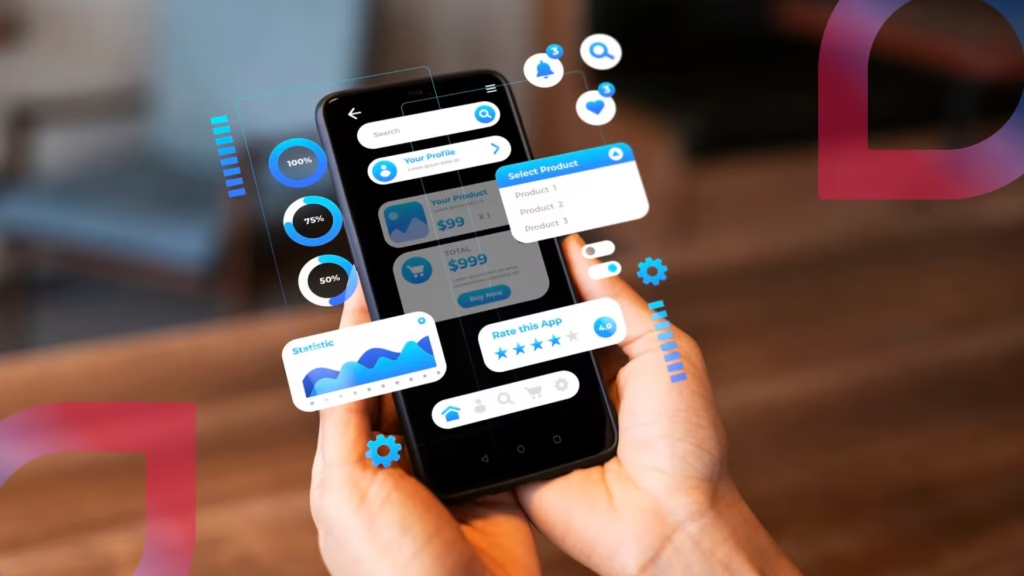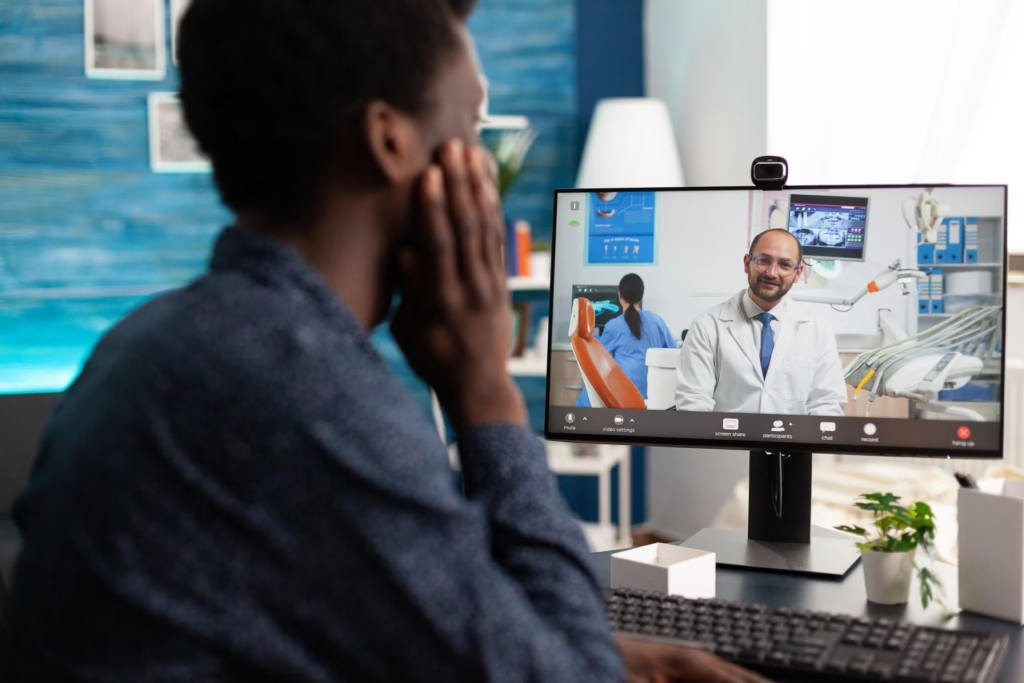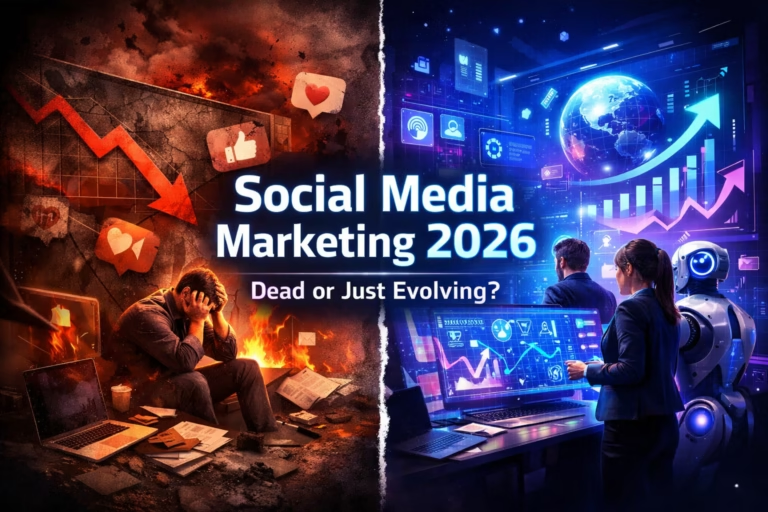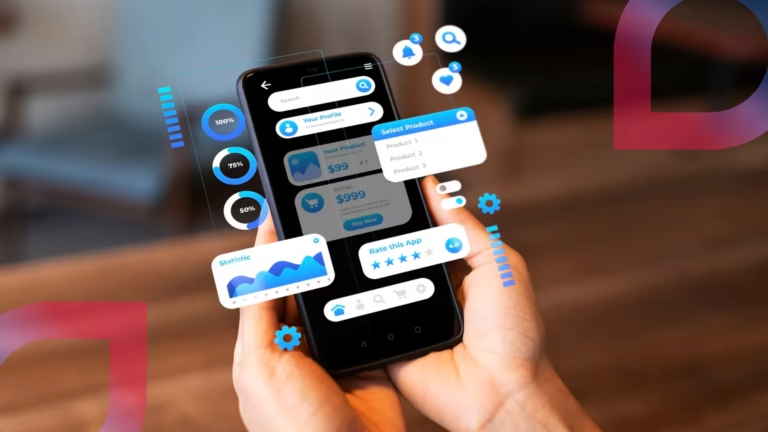
The Rise of Mobile Apps in Healthcare
In recent years, the significance of mobile application development in the healthcare sector has witnessed an unprecedented rise. More healthcare providers are recognizing the potential of mobile applications to enhance patient care and streamline service delivery. According to industry reports, the global mHealth market is projected to reach substantial growth, underlining the increasing reliance on mobile solutions for various healthcare-related functions.
Mobile applications serve a multitude of purposes within the healthcare ecosystem. They are utilized for patient engagement, enabling individuals to monitor their health, schedule appointments, and consult with medical professionals from the comfort of their homes. Furthermore, these applications enhance the accessibility of crucial medical information, allowing patients in remote areas, such as those in Delhi, to seek guidance and care without needing to travel long distances. The convenience offered by healthcare mobile applications is one of the key factors driving their adoption.
The COVID-19 pandemic accelerated this trend significantly as healthcare institutions scrambled to provide uninterrupted services. Many organizations adopted telemedicine solutions, enabling remote consultations and minimizing contact while ensuring that patients still receive necessary medical attention. This shift has revealed the critical role mobile apps play in crisis management, ensuring that both patients and healthcare providers stay connected and informed. Recent statistics show a marked increase in the download and use of health-related applications during the pandemic, signaling a broader acceptance and reliance on technology in healthcare.
As mobile application development progresses, the potential for improved healthcare services continues to expand, paving the way for innovative solutions that address the unique needs of patients and providers alike. The ongoing evolution of this technology is crucial for addressing future healthcare challenges, enhancing patient outcomes, and ultimately transforming the landscape of medical care delivery.
Key Features of Healthcare Mobile Apps
The advent of mobile application development in healthcare has ushered in numerous possibilities to enhance patient care and streamline operations. A well-designed healthcare mobile app should incorporate several key features that facilitate necessary functionalities while ensuring user satisfaction. Telemedicine capabilities are essential, allowing patients to connect with healthcare providers remotely, which is particularly beneficial for those in Delhi and other urban locales where access to healthcare can be a challenge. This feature not only increases efficiency but also helps in overcoming geographical barriers.
Another critical component is appointment scheduling functionality. Users should be able to easily book, reschedule, or cancel appointments through the app. This feature minimizes no-show rates and optimizes the utilization of healthcare resources. Furthermore, health tracking and monitoring capabilities are fundamental, enabling patients to log vital health metrics, access personal medical records, and receive insights into their health status. These functions empower users to take an active role in their healthcare, leading to improved health outcomes.
Medication reminders also play a vital role in healthcare mobile applications. By providing alerts for when to take medications, these features promote adherence to treatment regimens and ensure that patients do not miss important doses. In addition, secure communication channels between patients and healthcare providers are paramount for sharing sensitive information without compromising privacy. Such communication fosters a strong provider-patient relationship and enhances the overall quality of care.
Lastly, the significance of user interface (UI) and user experience (UX) design cannot be underestimated. An appealing and intuitive design enhances engagement and makes the app accessible to diverse demographics, including the elderly and individuals unfamiliar with technology. Overall, incorporating these essential features into healthcare mobile applications not only fosters better patient engagement but also contributes to a more effective healthcare system in Delhi and beyond.
Top Mobile App Development Companies in Delhi for Healthcare
Delhi, being a hub for technology and innovation, is home to a number of mobile app development companies that specialize in healthcare solutions. These companies offer a diverse range of services aimed at improving healthcare delivery through innovative applications. Their expertise not only enhances patient engagement but also streamlines operations for healthcare providers.
These companies exemplify excellence in mobile app development for healthcare in Delhi, each bringing their unique strengths to the table. Healthcare providers looking for the right development partner can greatly benefit from evaluating these organizations based on their specific requirements and project goals.
Future Trends in Healthcare Mobile App Development
The landscape of healthcare is continuously evolving, and the integration of mobile application development into this sector is no exception. As we look towards the future, several key trends are emerging that promise to revolutionize the way healthcare services are delivered. One of the most significant trends is the integration of artificial intelligence (AI) and machine learning (ML) within mobile apps. These technologies allow for enhanced data analysis, enabling healthcare providers to gain deeper insights into patient behaviors and treatment outcomes. AI and ML can also facilitate personalized healthcare recommendations, ultimately improving patient engagement and satisfaction.
Another promising area is augmented reality (AR), which has the potential to transform medical training and patient education. Through mobile applications, AR can provide immersive experiences, allowing healthcare professionals to practice surgeries in a simulated environment and patients to visualize their treatment processes in a more engaging manner. Furthermore, the integration of wearable technology is becoming increasingly prevalent. Devices such as smartwatches and fitness trackers offer real-time data that can be synchronized with healthcare mobile apps, enabling continuous monitoring of patient health metrics and fostering proactive interventions.
As these technologies develop, the importance of data privacy and security will also continue to grow. With increasing amounts of sensitive patient information being collected and stored, healthcare mobile application developers in Delhi must prioritize the implementation of robust security measures. Ensuring that user data is protected not only complies with regulations but also builds trust between patients and healthcare providers.
Overall, the convergence of these emerging technologies will lead to innovative healthcare solutions that enhance patient experiences and streamline healthcare delivery, setting the stage for a transformative future in mobile app development within the healthcare sector.








